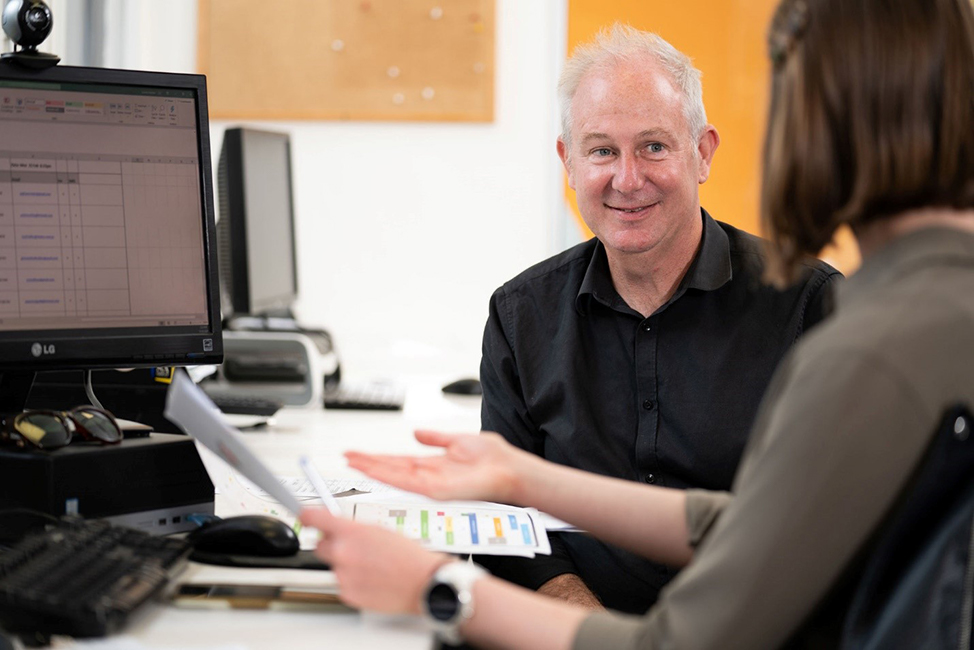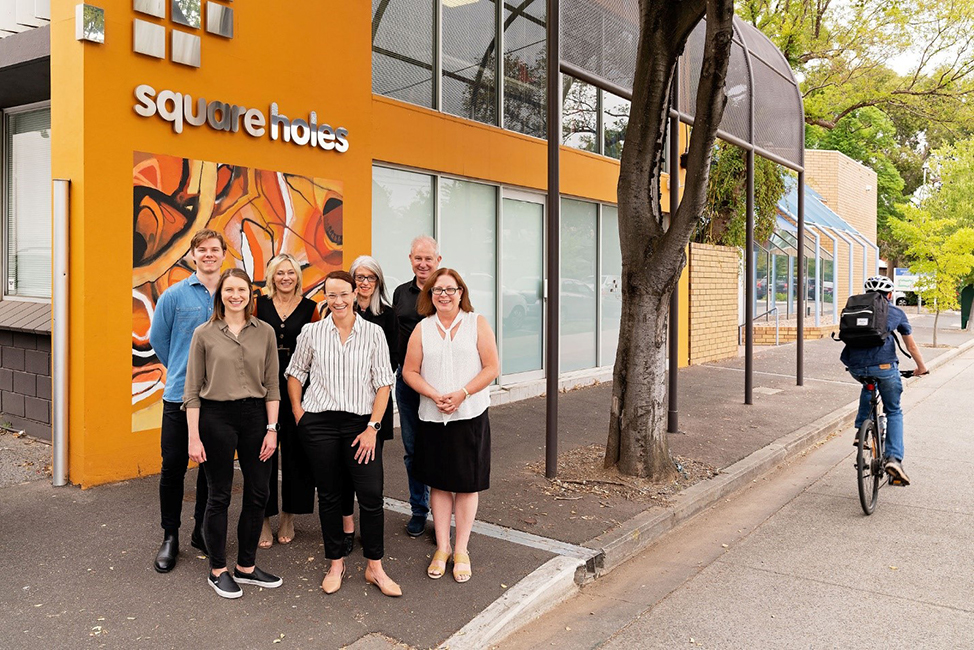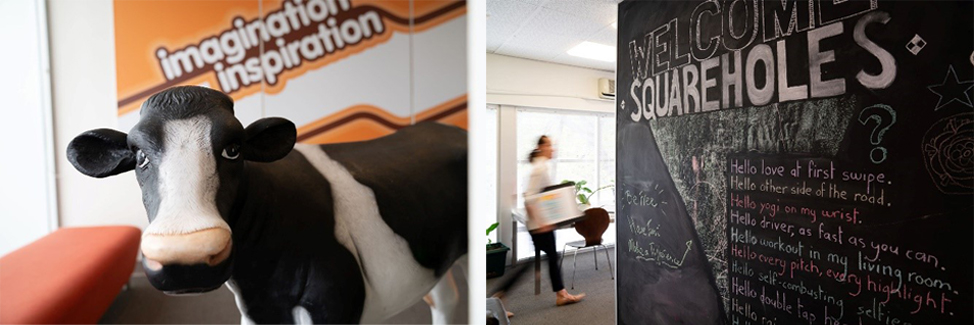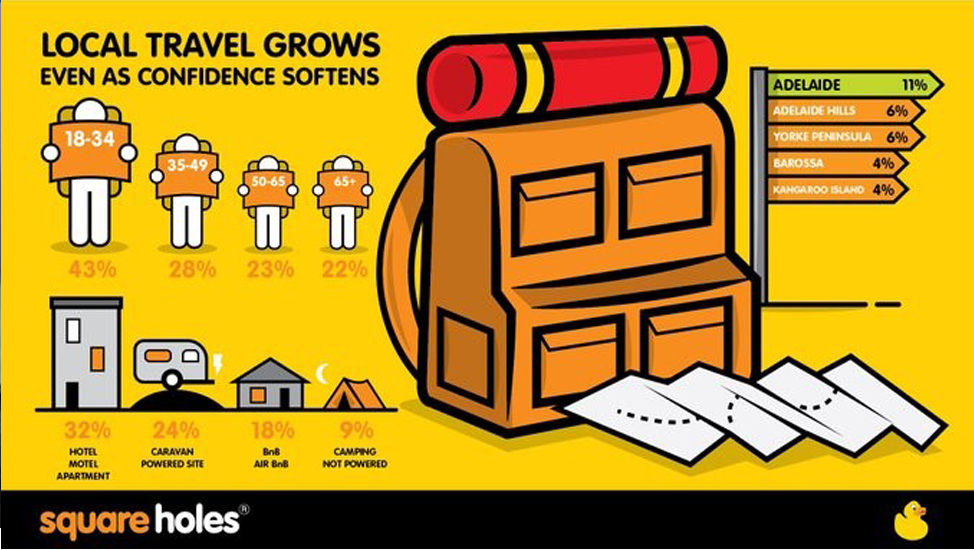- connecting our global network
31 May 2021
The Magic of Curiosity and Being a Round Peg in a Square Hole

Jason Dunstone
Managing Director & Founder of Square Holes and Budgie Love
Graduate Diploma of Commerce
Curiosity has been an integral part of Jason Dunstone’s life from the very beginning. This defining trait of his ever since childhood – even if it manifested as a little contrarian sometimes – is one that has stayed and served him well in his professional life and quest to redefine the research industry.
He wanted to do something unique and take a different path with his traditional business education in economics and a Graduate Diploma of Commerce from UniSA.
Even as a child, Jason’s mother always remarked he was an ‘ideas guy’, and this drive to innovate and push the boundaries – to do things a little different – imbues Square Holes, the market research agency he founded and now heads as Managing Director.
Deeply understanding an eclectic range of real people, their stories, beliefs and behaviours is at the core of what Jason and his team do at Square Holes. It has kept the organisation he established 16 years ago, to challenge the competitive, yet conservative, market-research industry, on the right path.
Jason is also hot on the heels of the launch of his new venture this month, Budgie Love. Budgie Love is a brand strategy company, inspired by parent agency Square Holes, designed to help Australian brands grow and reach global heights and success.
As marketing and cultural researchers, they cover an exhaustively wide ranging of topics, and funnel their insight into emerging trends and opportunities, allowing clients to focus on their core business.
Through providing the sought-after and unique service to all kinds of organisations, Jason and his team are proving that ongoing customer and community research can be just as valuable as the usual financial indicators.
Launching out on his own has been a rewarding process, not just uncovering business opportunities for clients, but being able to explore such fascinating topics and spaces, delving into a deeper understanding of what makes people tick and how the world around us works and prospers.

“I think part of the reason we created Square Holes was we didn't feel like the sector was really doing what it could do,” Jason says. “I think in research, it's not just about the stats and the data, it's about if you can find an insight that doesn't seem visible.”
“Sometimes there's a perception from the outside that's it’s not very interesting. Like you go to a party and you say you're in market research and their face can drop if you’re not careful.”
“We said from the outset we're just going to do it really well to change that perception of it, and I guess that's probably the essence of what were about.”
Sixteen years later and a quarter century in the industry, while Jason is still averse to becoming complacent or copying the status quo, there’s now a certain level of comfort and confidence that has allowed him to explore and challenge the norms of business in a different way.
He has learned quirky or offbeat is good as long as you can deliver and seen valuable lessons in making sure what you are producing is reliable. Then, once the fundamentals are right, being able to play.
“I've found over my career you start to get more comfortable with how you can play with it a little, you feel a bit more less restricted and happier with how you do that.”
“You just start to see patterns, and it becomes a bit more intuitive, about what you're doing rather than having to pull all the levers to make it all comes out the other side.”
“It's hard to see when you're younger. It just takes time – whether it's science or research or advertising – I'm sure it's true in many other professions as well. You just become more comfortable and start to do things a little more intuitively.”

25 years in any industry is a long time, but in a space that is all about charting changing attitudes and cultural expectations and needs, Jason has seen his fair share of transformations in the extensive gamut of topics he has covered throughout his career and what it means in a society.
This past year, Jason and his Square Holes team have been delving into life around the riverbank precinct and arts sector, to a massive study on loneliness, even research on lolly brands, chocolate, to caravanning, travelling, and reimagining aged care.
Of course, though, the biggest difference in this past year has been the emergence of the COVID-19 pandemic and how the crisis flung the entire world’s lives and future into chaos.
Square Holes has been tracking the minds and moods of South Australian's for good part of 10 years and saw firsthand with their research methods the trajectory of our mental health; plummeting in March 2020, rising back up in May, dipping again in June and the slow climb back up ever since.
They also found thought-provoking evidence on the way different age groups are dealing with COVID-19 – observing younger people are finding it psychologically challenging, but financially they're feeling more confident. Whereas, older age groups are feeling more psychologically strong, but are considerably more financially worried.
There’s also been a number of positives that have come out of the “bizarre period” such as a new appreciation for Australia’s positioning and cultural expectations in the world.
Jason and Square Holes found that while historically our geographic isolation and small population has been a weakness or challenge, people are embracing this aspect of the country and even wanting to move to smaller cities and into the regions. It’s been the biggest benefit to us during this period of upheaval and uncertainty.

“There's sometimes a horrible thing about chaos and uncertainty. But there's also something nice about it and the kind of opportunity it presents to create change. I think that's probably where we've found it interesting.”
“Analysing these trends helps people to have more of an idea of what's going on out there and hopefully gets them to think differently, or question things, or just even getting them to think further – what can we do to put in interventions to make this a bit better.”
Experiencing – and being able to demonstrate through research and their studies – such a historic time in history has only cemented Jason’s passion for his work and the insights they’re constantly pulling in around culture and community.
It’s also reiterated why curiosity continues to be so valuable.
“Part of the problem is we think we know all the answers or have to find the definitive answers,” Jason says. “When we feel like we know all the answers we don't need imagination or creativity.”
“Research is about findings – it does get us closer – but maybe the whole thing is about that curiosity and searching. It's a sad world if we feel like we know all of the answers and lose that desire to be curious.”
“Not all ideas are great, but the ideas and search that leads you closer to what your vision is, is where you should be thinking.”




